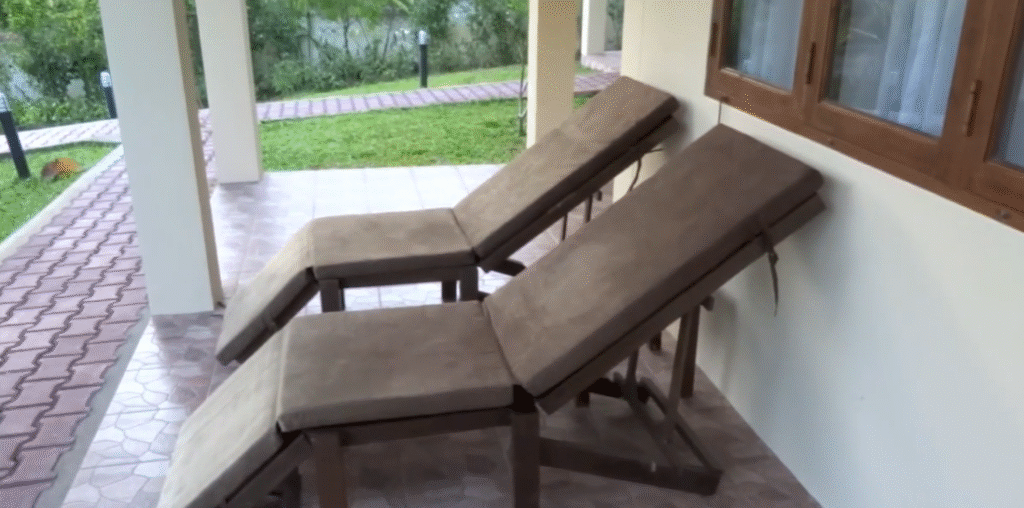The idea of aging with dignity has been reexamined in the last ten years due to the aging of populations in North America and Europe. Many families are forced to consider unanticipated options due to the harsh realities of underfunded, overburdened elder care in their home countries. Care Resort Chiang Mai enters the discussion at this exact moment, softly but drastically altering long-term care expectations.
Situated in the verdant Mae Rim neighborhood, this establishment is more than just a resort; it’s a haven for happiness, healing, and freedom. It provides a sense of regeneration rather than deterioration, which is something that many care facilities in the West lack. It is very similar to boutique health vacations. Personalized treatment, outstanding attention, and a calm setting that promotes genuine rehabilitation are provided to guests, many of whom come after emotionally taxing experiences with institutional care.
| Feature | Details |
|---|---|
| Name | Care Resort Chiang Mai |
| Location | 43/1 Moo 6, Maeram, Mae Rim, Chiang Mai 50180, Thailand |
| Website | www.careresortchiangmai.com |
| Services | Independent Living with Care, Close Care, Memory Care |
| Accommodation | Disabled-accessible villas, alarm-linked to central nursing station |
| Activities | Daily indoor/outdoor programs, excursions, community events |
| Languages | English and Thai |
| Awards | Voted “Most Outstanding Care Resort” 2016–2017 |
| Target Demographic | International retirees, including UK, German, and Australian citizens |
| Notable Mentions | Featured by Al Jazeera, 60 Minutes Australia |
The resort offers both short-term and long-term accommodations, catering to a wonderfully varied clientele. While some choose to make it their permanent home, others come for seasonal visits, especially in the winter. Its emphasis on personal autonomy is what makes it especially advantageous. There are no strict meal plans. Rather, individuals can eat whenever and however they like, and meals are prepared to order—a modest yet effective method to reestablish agency in day-to-day living.

This Thai institution has seen a notable increase in the number of British retirees in recent years. This increasing migration has been brought to light by media outlets such as The Telegraph and 60 Minutes Australia. These seniors are choosing something far more compassionate because they are sick of waiting lists and impersonal nursing facilities that resemble hospitals. “It’s not just about being cared for—it’s about being treated like a person again,” a British woman stated in a video feature.
The villas in the resort are arranged in a picturesque setting with ponds, gardens, and shady walkways. Each unit was created with accessibility in mind and is completely modified for visitors with limited mobility. It also has panic buttons that allow guests to communicate with the care team immediately. Compared to facilities in Germany or the UK, the staffing levels are abnormally high. The quality of care has significantly increased as a result, particularly for patients with progressing diseases like Alzheimer’s.
Residents enjoy monthly social events, weekly trips to temples or markets, and a full-time activities supervisor in this specially designed setting. The daughter of a prior visitor revealed that her father, who had previously been quiet and withdrawn in a nursing home in London, had taken up watercolor painting and was eagerly participating in nature hikes. In conventional senior care facilities, where stimulation is sometimes restricted to television and sporadic bingo games, this type of change is uncommon.
The memory care apartments provide both security and stimulation for individuals coping with dementia or recovering from surgery. Care Resort Chiang Mai offers an atmosphere where quality of life can be greatly improved and deterioration can be gradually slowed down via strategic design and careful staffing. The “humanity” of the staff—a term not usually connected to clinical care—is frequently mentioned in reviews. Residents’ preferences are honored rather than overridden, and they are addressed as adults rather than children.
The resort keeps a high level of medical preparedness by forming strategic alliances with nearby hospitals and therapists. The visitor experience seamlessly incorporates mental health care, medication management, and physical therapy. However, it doesn’t feel like a hospital. Instead, with palm trees providing shade and the cold mountain air cooling it, it seems like a wellness resort.
The price approach is intended to serve middle-class seniors without sacrificing comfort, and it is surprisingly inexpensive when compared to care options in Melbourne or London. Although it is not inexpensive, the cost-to-quality ratio is noticeably better, providing first-rate care for a fraction of the price that private nursing homes in the UK could want. Many people are reconsidering the idea of “aging in place” as a result of this economic change. Thailand is providing a completely new experience for individuals who are eager to travel: aging in paradise.
Something more profound—an emotional reevaluation of what it means to age with purpose—lies behind the statistics and honors. Once neglected or onerous, elderly persons are frequently reintegrated into a supportive community. They become pals. They commemorate birthdays. They drink fruit juice in the sun and swim in the pool. The employees develop as confidantes. The scenery turns into a home.
It’s no accident that upscale care facilities like this one are growing in popularity at the same time that concerns about older people’s mental health are spreading around the world. Depression, worry, and loneliness can hasten physical decline. By emphasizing cultural sensitivity, environmental comfort, and social interaction, Care Resort Chiang Mai is turning out to be a very successful cure for spiritual as well as physical ailments.
Public leaders and influencers involved in aging advocacy are paying attention. Thai elder care facilities have started to be included in retirement blogs, medical panels, and international expos as workable answers to the escalating dilemma in the West. Thailand offers a particularly creative platform for this type of care model because of its robust medical infrastructure and respectful intergenerational culture. The Thai approach to elder care feels anchored in empathy and reverence, in contrast to the frequently transactional aspect of Western elder care.
Places like Care Resort Chiang Mai may not only become alternatives but also standards in the years to come as more families search for long-term solutions that strike a mix between care, dignity, and cost. Families from all around Europe are already planning exploratory trips. After surgery, some people opt for it as a short-term solution, while others make a long-term commitment. In any case, they are joining a group that is purposefully created to elevate rather than merely control.
